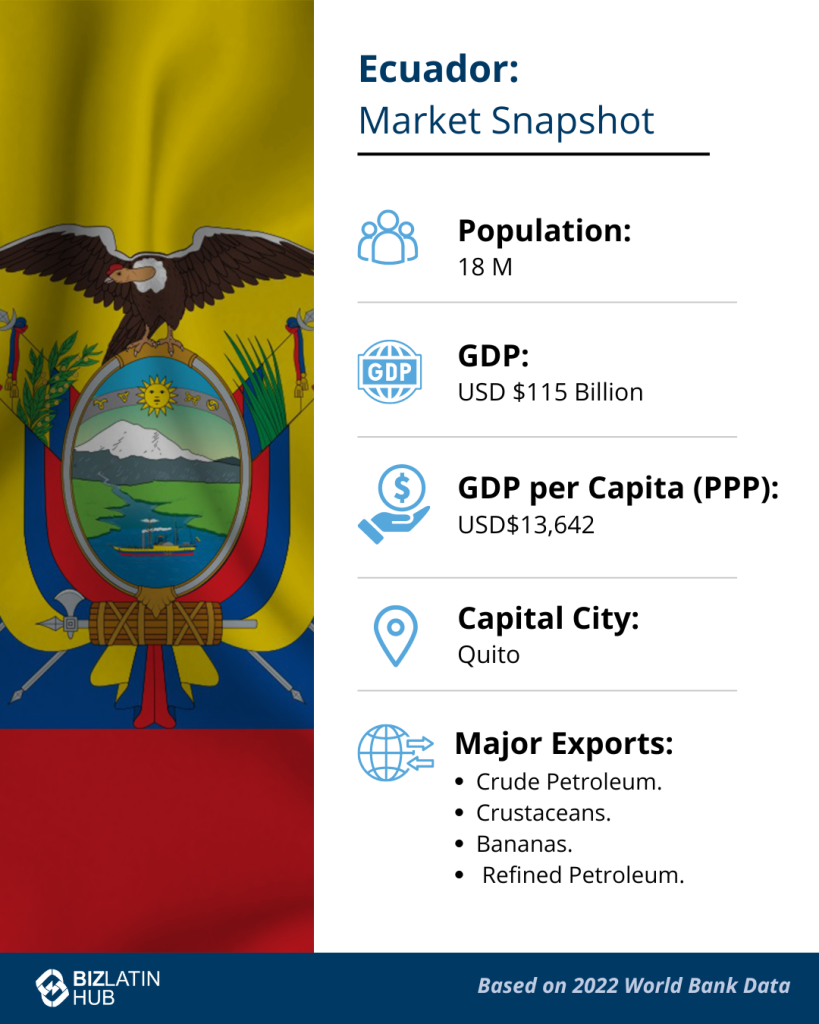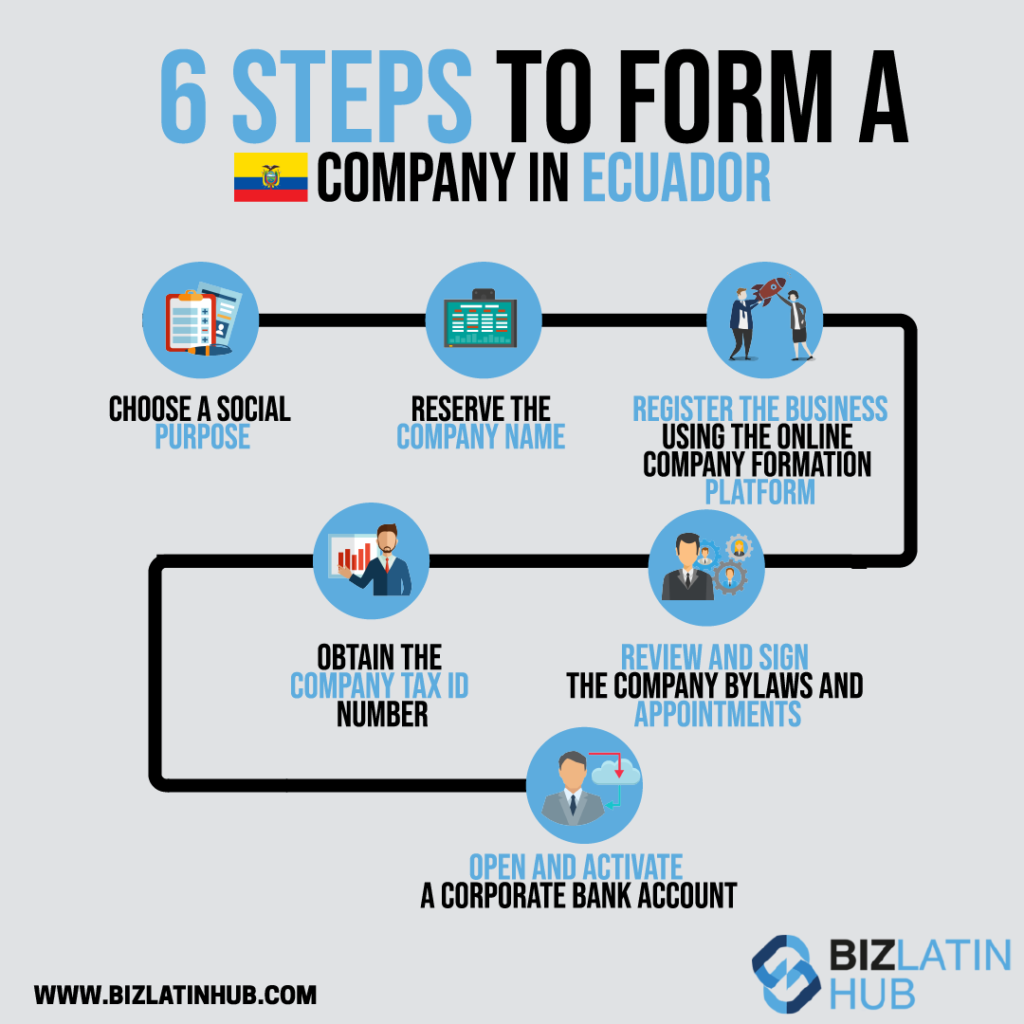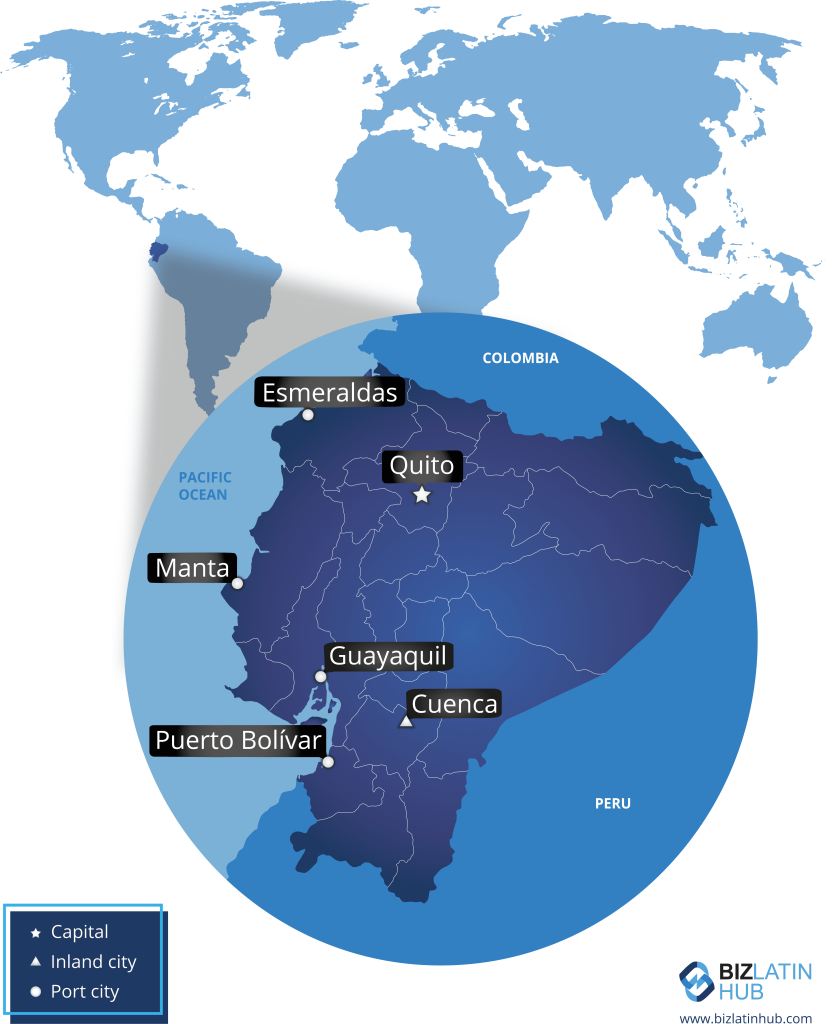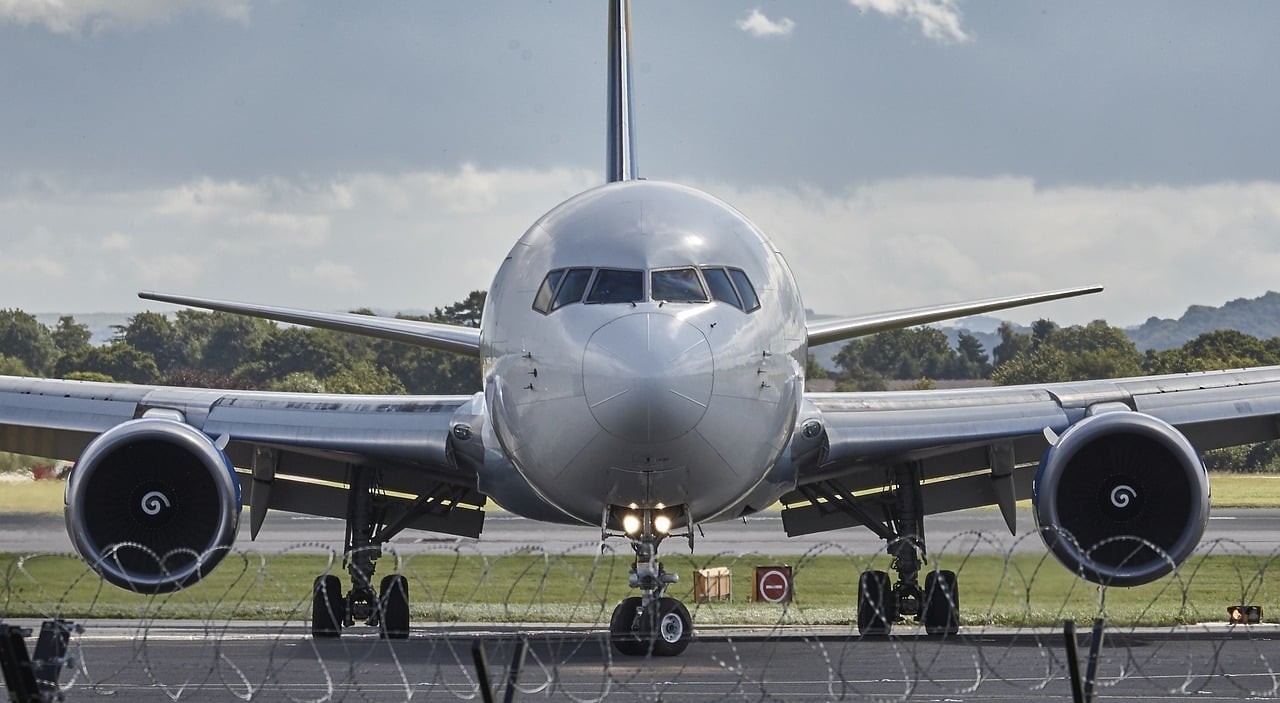Ecuador’s economy is taking significant strides to open itself up to foreign business and investment, and as such is facilitating increasing people and goods movements across its borders. That is leading increased foreign investment, for example in areas such as starting a cargo airline in Ecuador.
Vital to this facilitation are the country’s airlines, though it can be said that there is room for more actors in this space. Tourism, cargo, and business travel needs are upping the demand for commercial aviation activity. We outline how companies can go about registering their cargo airline in Ecuador.
Biz Latin Hub can help you register a cargo airline in Ecuador or elsewhere in the region, with our 18 dedicated local offices across Latin America and the Caribbean. Not only that, but our full array of back office services can support you from company formation, throughout accounting and legal support all the way to eventual termination if necessary.
Who regulates cargo airlines in Ecuador?

The Ecuadorian entity regulating private aviation is known as Direccion General de Aviacion Civil, or DGAC. DGAC covers the registration and proceeding assessment processes to formalize a new commercial airline in Ecuador.
International Air Transport Association
The International Air Transport Association, or IATA, is a global organization that connects airlines all over the world to a central network of services, standards and provisions. Their objective is to work as the intermediary between airlines, cargo agents and passengers. IATA aims to uphold the highest safety and efficiency measures in this network.
The 290 airlines that are part of this network, represent around 82% of the world’s total air traffic. The IATA works to bridge differences in legislation, currencies, checks and balances, and language to find common ground and support this network.
The IATA are the upholders of the Cargo Account Settlement System, or CASS, that forms part of the airline registration process in Ecuador. CASS is explained in more detail below.
What is the registration process for a cargo airline in Ecuador?

Those interested in providing air transport service within, from or to Ecuadorian territory must obtain an Operation Permit. This permit sets specific provisions and a technical certification that will be granted in compliance with the Civil Aviation Technical Regulations (RDAC).
To get started, you’ll first need to decide whether you or your company’s in-house legal member will formally sign off on the application, or whether you will do that through an externally granted power of attorney or POA. These representatives are responsible for submitting your application.
Your application must include:
- Name of company
- Company taxpayer registry number (RUC)
- Main address of the airline
- Type of service(s) proposed: passenger, cargo or mail
- Routes and frequencies that it intends to operate
- Identification of legal address or electronic means for future notifications.
The Secretariat of the Civil Aviation Council must verify all documents attached to your application, and that they comply with the requirements set out on the DGAC website.
The DGAC will work to deliver reports carrying conclusions and recommendations on the outcomes of your application, taking into consideration any observations made about your ability to comply with stated requirements. This process is carried out over 5 days.
Once complete, an extract of your application will be published on the website of the National Civil Aviation Council, to communicate the operation of your company to others in the country, and the specific services it provides. This step is to invite public comment on your application from other operators in the industry. Any ‘observations’ made and validated by the Council must be clarified or corrected within 10 days. Failure to do so will result in the withdrawal of your application.
In the 5 days following clarification of any public observations, the Secretariat will draw up a unified report and draft resolution to present before the National Council, to approve your application and grant an Operation Permit for your airline.
What documentation do you need for a cargo airline in Ecuador?
The application requires a series of documentation from the requesting company. These documents include:
- Signature from your legal representative
- Superintendence Certificate: this is required from companies younger than 2 years who are applying for this permit for the first time. For this, they’ll need to demonstrate that their registered capital is 20 times that stated in the country’s Companies Act (currently USD$16,000)
- Technical information about your aircraft, including
- Kind, model, year and type of aircraft
- Modality of use
- Track analysis and other technical aspects
- Proof of airport certification: the designated airport operator must confirm the availability of physical spaces necessary for the exercise of the proposed activity
- Air Operator Certificate (AOC)
- Certificate of insurance
- Guarantee in favour of the DGAC
- Information outlining the location for your airline’s main operations and if different, the location for your maintenance operations, such as a lease.

Note the fees associated with the application include USD$30,000 for the DGAC Guarantee, and an additional USD$500-1000 for processing your application.
Register with CASS
CASS is a liquidation system created by IATA and other international airlines that connects and streamlines accounts between carriers and freight intermediaries. IATA requires that each airline connecting with them signs up to CASS. This is a good move for making business-to-business connection between airline and related service companies simple.
To register with CASS, you’ll need to provide your certified copy of your appointed POA or appointments of legal representative, and your national tax identification number (RUC).
FAQs on cargo airlines in Ecuador
Yes, a cargo airline can be 100% foreign owned, reflected in the process of establishing a company in the country.
Ecuador is a hub for trade across the Pacific. It is increasingly becoming a prime destination for nearshoring efforts from the USA and is on track to continue this trend.
The Ecuadorian entity regulating private aviation is known as Direccion General de Aviacion Civil, or DGAC. DGAC covers the registration and proceeding assessment processes to formalize a new commercial airline in Ecuador.
Signature from your legal representative
Superintendence Certificate: this is required from companies younger than 2 years who are applying for this permit for the first time. For this, they’ll need to demonstrate that their registered capital is 20 times that stated in the country’s Companies Act (currently USD$16,000)
Technical information about your aircraft, including Kind, model, year and type of aircraft
Modality of use
Track analysis and other technical aspects
Proof of airport certification: the designated airport operator must confirm the availability of physical spaces necessary for the exercise of the proposed activity
Air Operator Certificate (AOC)
Certificate of insurance
Guarantee in favour of the DGAC
Information outlining the location for your airline’s main operations and if different, the location for your maintenance operations, such as a lease.
Biz Latin Hub can help you register a cargo airline in Ecuador
Consider an air freight venture in Ecuador. As the country continues to develop at a rapid pace, demand for air travel and freight are increasing. This industry’s saturation is low, making space for new actors looking for a LATAM expansion opportunity.
At Biz Latin Hub, we facilitate market entry by providing a customized range of business solutions for companies expanding into Ecuador and the wider region – including legal representation for those in the aviation industry.
Reach out to us today to learn more about our experience guiding businesses through legal and commercial bureaucratic processes, and how we can help you. Contact us here to get started.





